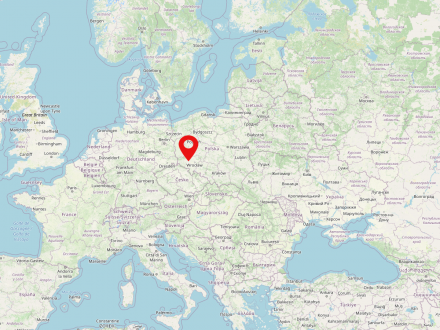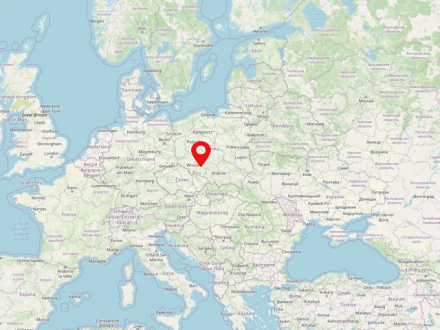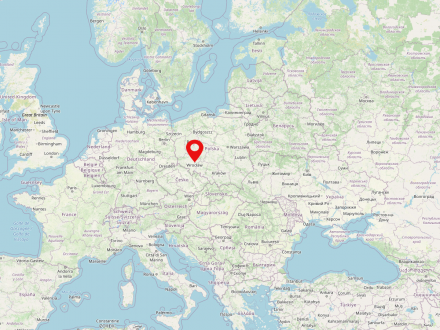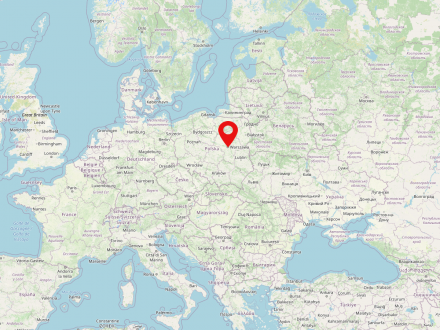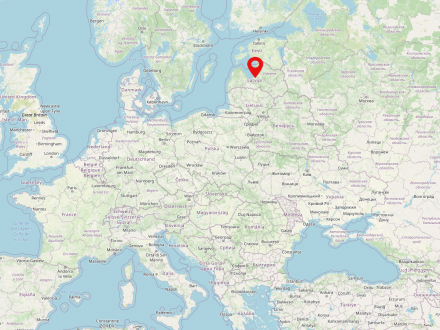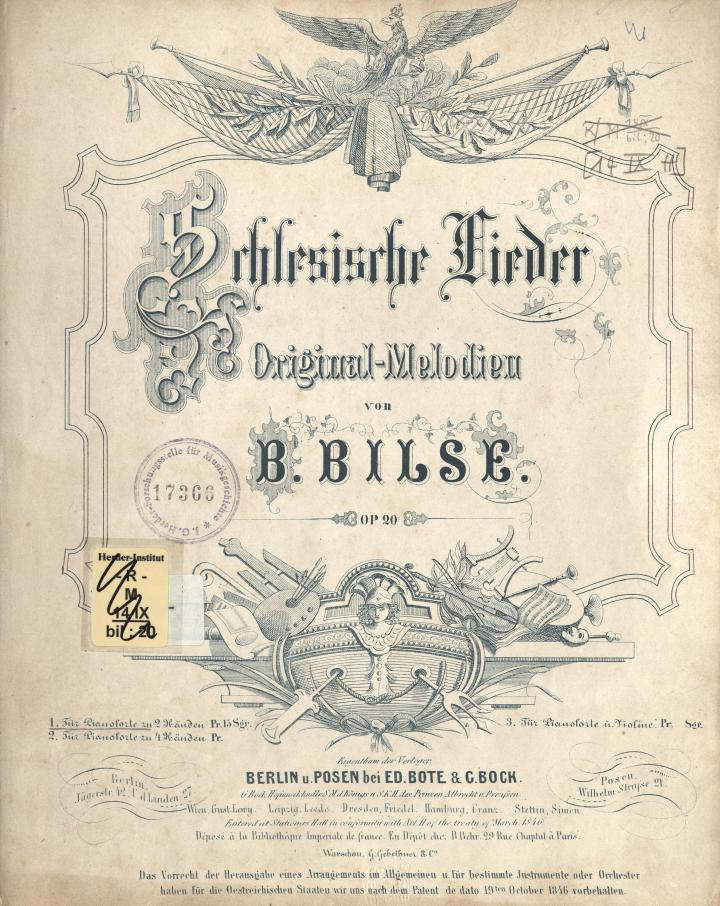Legnica is a city inhabited by 99,000 people in the Polish voivodeship of Lower Silesia. The city is located in the west of the country not far from the capital of the voivodeship, Wroclaw. Legnica was part of the Prussian province of Silesia till 1945.
Silesia (Polish: Śląsk, Czech: Slezsko) is a historical landscape, which today is mainly located in the extreme southwest of Poland, but in parts also on the territory of Germany and the Czech Republic. By far the most significant river is the Oder. To the south, Silesia is bordered mainly by the Sudeten and Beskid mountain ranges. Today, almost 8 million people live in Silesia. The largest cities in the region are Wrocław, Opole and Katowice. Before 1945, most of the region was part of Prussia for two hundred years, and before the Silesian Wars (from 1740) it was part of the Habsburg Empire for almost as many years. Silesia is classified into Upper and Lower Silesia.
Wrocław (German: Breslau) is one of the largest cities in Poland (population in 2022: 674,079). It is located in the Lower Silesian Voivodeship in the southwest of the country.
Initially under Bohemian, Piast and at other times Hungarian rule, the Habsburgs took over the Silesian territories in 1526, including Wrocław. Another turning point in the city's history was the occupation of Wroclaw by Prussian troops in 1741 and the subsequent incorporation of a large part of Silesia into the Kingdom of Prussia.
The dramatic increase in population and the fast-growing industrialization led to the rapid urbanization of the suburbs and their incorporation, which was accompanied by the demolition of the city walls at the beginning of the 19th century. By 1840, Breslau had already grown into a large city with 100,000 inhabitants. At the end of the 19th century, the cityscape, which was often still influenced by the Middle Ages, changed into a large city in the Wilhelmine style. The highlight of the city's development before the First World War was the construction of the Exhibition Park as the new center of Wrocław's commercial future with the Centennial Hall from 1913, which has been a UNESCO World Heritage Site since 2006.
In the 1920s and 30s, 36 villages were incorporated and housing estates were built on the outskirts of the city. In order to meet the great housing shortage after the First World War, housing cooperatives were also commissioned to build housing estates.
Declared a fortress in 1944, Wrocław was almost completely destroyed during the subsequent fightings in the first half of 1945. Reconstruction of the now Polish city lasted until the 1960s.
Of the Jewish population of around 20,000, only 160 people found their way back to the city after the Second World War. Between 1945 and 1947, most of the city's remaining or returning - German - population was forced to emigrate and was replaced by people from the territory of the pre-war Polish state, including the territories lost to the Soviet Union.
After the political upheaval of 1989, Wrocław rose to new, impressive heights. The transformation process and its spatial consequences led to a rapid upswing in the city, supported by Poland's accession to the European Union in 2004. Today, Wrocław is one of the most prosperous cities in Poland.
Warsaw is the capital of Poland and also the largest city in the country (population in 2022: 1,861,975). It is located in the Mazovian Voivodeship on Poland's longest river, the Vistula. Warsaw first became the capital of the Polish-Lithuanian noble republic at the end of the 16th century, replacing Krakow, which had previously been the Polish capital. During the partitions of Poland-Lithuania, Warsaw was occupied several times and finally became part of the Prussian province of South Prussia for eleven years. From 1807 to 1815 the city was the capital of the Duchy of Warsaw, a short-lived Napoleonic satellite state; in the annexation of the Kingdom of Poland under Russian suzerainty (the so-called Congress Poland). It was not until the establishment of the Second Polish Republic after the end of World War I that Warsaw was again the capital of an independent Polish state.
At the beginning of World War II, Warsaw was conquered and occupied by the Wehrmacht only after intense fighting and a siege lasting several weeks. Even then, a five-digit number of inhabitants were killed and parts of the city, known not least for its numerous baroque palaces and parks, were already severely damaged. In the course of the subsequent oppression, persecution and murder of the Polish and Jewish population, by far the largest Jewish ghetto under German occupation was established in the form of the Warsaw Ghetto, which served as a collection camp for several hundred thousand people from the city, the surrounding area and even occupied foreign countries, and was also the starting point for deportation to labor and extermination camps.
As a result of the Warsaw Ghetto Uprising from April 18, 1943 and its suppression in early May 1943, the ghetto area was systematically destroyed and its last inhabitants deported and murdered. This was followed in the summer of 1944 by the Warsaw Uprising against the German occupation, which lasted two months and resulted in the deaths of almost two hundred thousand Poles, and after its suppression the rest of Warsaw was also systematically destroyed by German units.
In the post-war period, many historic buildings and downtown areas, including the Warsaw Royal Castle and the Old Town, were rebuilt - a process that continues to this day.
Kaliningrad is a city in today's Russia. It is located in the Kaliningrad oblast, a Russian exclave between Lithuania and Poland. Kaliningrad, formerly Königsberg, belonged to Prussia for several centuries and was the northeasternmost major city.



